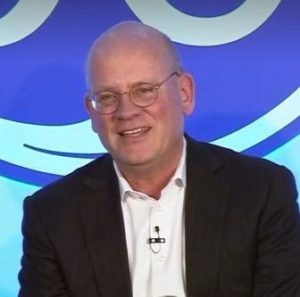
Where do ideas come from, and how are they disseminated amongst economists? One of the great ironies in the history of economic thought has been the development of particular concepts, the theoretical importance of which is misattributed to another economist. For example, the concept of a Giffen Good, attributed to Robert Giffen, was first coined by Alfred Marshall in Principles of Economics (1890 [1920]). The Coase Theorem first appeared in the 3rd Edition of George Stigler’s The Theory of Price (1946 [1966]: 113). Moreover, what is known as the “Alchian Thesis” was first coined by Mark Blaug (1980: 117), which is “the notion that all motivational assumptions in economics,” such as assumption of profit-maximization among firms, “may be construed as as-if statements.”
At first blush, it makes sense for an economist to first develop a concept, to be named only later for its recognized importance. For example, the concept of rent-seeking, developed by Gordon Tullock (1967), was only later coined as “rent-seeking” by economist Anne Krueger (1974), who also was foundational in developing the concept. However, it is oftentimes questionable whether or not each concept should be directly attributed to its namesake.
For my purposes here, I will focus on the Alchian Thesis, its interpretation, and its applicability, but before doing so, I will briefly illustrate how my argument runs parallel to the reception of another myth in economics, such as alleged existence of Giffen Goods. I realize that this is a strong claim to make, but let us consider how this concept has been applied, and if indeed its application has distorted our understanding of historical facts.

Dwyer and Lindsay (1984) challenged the notion that Giffen goods violate the law of demand by appealing to the very historical example used to exemplify their existence, namely the Irish Potato Famine. They raise two important points, which I’m paraphrasing. First, Giffen himself never wrote directly about this alleged exception to the law of demand (see also Stigler 1947). Second, and more importantly for my point here, if indeed there was an upward sloping demand curve for potatoes during the Irish Potato Famine, and if indeed (as we would expect during famine) the supply of potatoes contracted, then this would imply that the Irish ate less (not more!) potatoes as the price for potatoes fell. Could it really be the case that, as people are starving, they would eat less of a staple food as its price fell? In spite of the absurdity of this conclusion, this example is still utilized to demonstrate an alleged violation of the law of demand, to the expense of understanding how individuals are acting, given the particular circumstances of time and place. A more plausible explanation, given the expectation that potatoes would become more scarce in the future, is an outward shift, or increase, in the downward sloping demand curve for potatoes, not a change along an allegedly upward sloping demand curve.
Now let us turn to the alleged “Alchian Thesis,” the notion, presumably originated by Armen Alchian (1950) himself, that firms act as if they are profit maximizing. Not only is the claim absolutely false, but importantly, this interpretation of Alchian’s argument regarding firm behavior undermines its explanatory power. But before illustrating how misleading this interpretation is for understanding market processes, it’s important to ask how this interpretation first originated. As Neil Kay (1995) has argued, the influence of Milton Friedman’s “The Methodology of Positive Economics” (1953) on economic methodology had been instrumental in presenting this interpretation of Alchian’s argument. Though Friedman himself is careful to restate Alchian’s point that, as “a result of uncertainty,” profits “cannot be deliberately maximized in advance” by firms (Friedman 1953, p. 21, fn. 16) – not to mention the fact that it was Friedman who encouraged its publication at the Journal of Political Economy – Alchian’s argument has nonetheless been interpreted through Friedman’s broader methodological claim, namely that it’s not the realism of assumptions that matter for economic theory per se, “but whether they are sufficiently good approximations for the purpose in hand,” namely the accuracy of predictions (Friedman 1953, p. 15).
Alchian is very clear, however, that in “an economic system the realization of profits is the criterion according to which successful and surviving firms are selected” (1950, p. 213). “Realized positive profits, not maximum profits, are the mark of success and viability” (ibid., emphasis original). He goes further to argue that the “crucial element is one’s aggregate position relative to actual competitors, not some hypothetically perfect competitors…Even in a world of stupid men there would still be profits” (ibid., emphasis added). Therefore, contrary to the traditional interpretation of the Alchian Thesis, “[t]here are no implications of “profit maximization,” and this difference is important” (Alchian 1950, p. 217), because “[t]he pursuit of profits, and not some hypothetical undefinable perfect situation, is the relevant objective whose fulfilment is rewarded with survival” (Alchian 1950, p. 218). None of this implies that firm owners are unpurposive or irrational, but it does imply that the postulate of profit-maximization is neither a necessary nor a sufficient condition for understanding firm behavior.
One may object here and claim that I (or Alchian) am splitting hairs, and the point here is purely one of semantics. Perhaps so, but to conflate “profit-maximization” with “realized positive profits” across particular circumstances of time and place renders the term into a tautology, and therefore meaningless for explaining the particular manifestation of firm behavior adapting to at a particular time and place, specifically through adaptive variation and selection (see also Manne and Zywicki 2014).
If the Alchian Thesis is correct, then why do we observe “golden parachutes,” or severance packages paid to the CEOs of corporations, even when that CEO has been responsible for huge corporate losses? For example, in 2018, after a 14-month tenure as CEO of General Electric (GE), John Flannery was paid a severance package worth more than $10 million, even after GE’s stock plummeted under his watch, falling roughly 50 percent.

The objection that could be raised here is that, consistent with the Alchian Thesis, GE was approximating the conditions of profit maximization, given the constraints it was facing. This may be the case, but approximating compared to what? The conditions of perfect competition? Given this benchmark, GE would have known to pick another CEO, or for that matter anticipate the mistakes made by Flannery’s predecessors, Jack Welch and Jeff Immelt. The point here is not to argue who should be blamed for the GE’s tragic decline. Rather, it is precisely because firms cannot approximate the conditions of profit maximization ex-post by picking a profit-maximizing CEO that explains why they will adopt golden parachutes to insure against potential losses ex-ante. Under conditions of perfect competition, and hence perfect foresight, there would be no transaction costs associated with potential post-contractual litigation. Analogous to the purpose it serves for a marriage, the golden parachute serves like a prenuptial agreement for firms, which allows the firm to terminate its relationship with its CEO in a quick and cost-effective manner. Without a golden parachute, Flannery may have found it worthwhile to sue GE for wrongful termination, attributing the failures to the firm to the situation he inherited from his predecessors or other economic circumstances outside of his control. The expectation of this fact, and the additional costs of legal fees and continued losses under a bad CEO, is what incentivizes firm to adopt golden parachutes, specifically as a contractual arrangement to reduce transaction costs. To simply assume that firms “profit maximize” independent of the subsidiary propositions of time and place does not explain why particular contractual and organizational arrangements emerge, namely the realization of positive profits through the reduction of transaction costs in an open-ended world of uncertainty.
To conclude, the purpose of theory is to abstract from reality, and therefore it is impossible to adopt assumptions that are perfectly realistic. However, this does not imply that attributing realism of assumptions to economic theory is a trivial point. The implication of ignoring the realism of assumptions is to render theoretical concepts, at best, irrelevant to understanding historical facts, or at worst, create a distortion of the interpretation of such facts. Nothing I am arguing here is new, but given the foothold of potentially misleading interpretations of particular concepts in economic theory, their applicability requires constant reassessment by economic educators.
Rosolino Candela is a Senior Fellow in the F.A. Hayek Program for Advanced Study in Philosophy, Politics, and Economics, and Associate Director of Academic and Student Programs at the Mercatus Center at George Mason University

READER COMMENTS
Mark Z
Jan 15 2021 at 4:54pm
“In spite of the absurdity of this conclusion…”
I’m not quite following what’s absurd about it. Usually, this example* is presented in the context of substitution between potatoes and meat (a superior substitute for potatoes). If potatoes become cheaper, the income effect from this leads to an increase the relatively more expensive meat, outweighing the substitution effect. I think the phenomenon is an artifact of having a hard minimum consumption level of the two goods combined (minimum caloric intake that is).
*As I understand the historical example of potatoes has been debunked, though it may have applied to bacon pigs.
Kurt Schuler
Jan 16 2021 at 5:38pm
Perhaps you are aware of Stigler’s law of eponomy, named not for George Stigler but for his statistician son Stephen. Stigler’s law says that no scientific discovery is named after its original discoverer. Stephen Stigler points out that his law was itself previously enunciated by the sociologist Robert K. Merton.
Mark Brady
Jan 18 2021 at 7:07pm
In fact Alfred Marshall did not discuss Giffen goods until the third edition (1895) of his Principles of Economics.
That said, nearly a century before (1800), Henry Beeke (1751–1837) wrote that “In all times of Dearness, there is an Increase in the consumption of whatever forms the Basis of the Food of the People, so long as by retrenching all other expense in Provisions they can possibly find Money to purchase it. They do not understand the Arts of Economical Cookery, they have not Utensils for it, their Stomachs are not used to novelties. With us the Consumption of Bread always increases when their Money, if divided, will not purchase an addition of Meat to the Diet which they cannot abandon. And this is true even when Bread is become in comparison far more costly.”
And in The Happiness of States (1804; published 1815) Simon Gray (alias George Purves, LL.D.) (d. 1842) wrote that “To raise the price of corn in any great degree, tends directly to increase the general consumption of that necessary.” “There is no paradox here,” since bread is both an inferior good and a large item in the budgets of the poor. Thus “By raising the price of bread corn,… we force them to have more on it; … However, paradoxical, therefore, it may be in seeming, it is a plain substantial fact, that the higher the price of corn and potatoes, the greater is the consumption …”
Comments are closed.